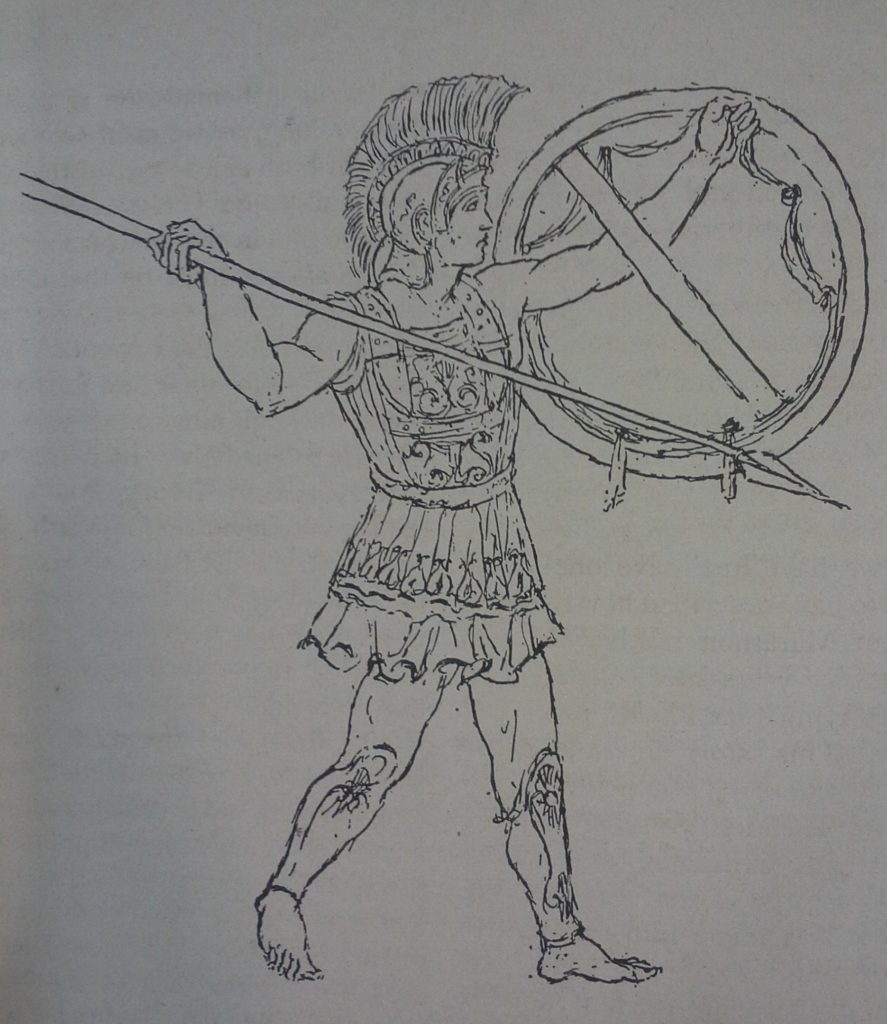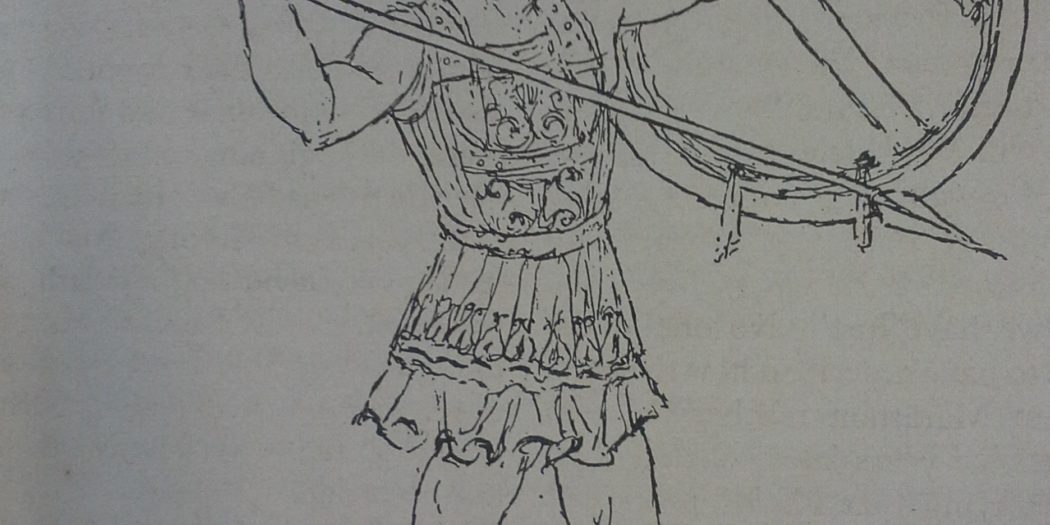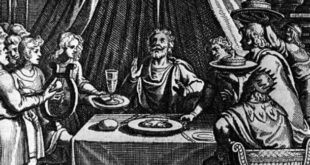Both Sparta and Athens were determined to fight, — so determined that they had behaved outrageously towards Persian ambassadors who had visited them to demand submission. The traditional way of
doing this was to ask for “earth and water” but when the ambassadors made this demand in Athens they were thrown into the pit where criminals were put. “Get earth from there”, yelled the citizens. At Sparta the ambassadors were plunged into a well. “Get water from there”, they were told. Throughout history the person of an ambassador has been held sacred and if the Persians had won at Marathon the Greeks would no doubt have been quick to attribute defeat to the anger of the gods, aroused by Spartan and Athenian insolence.
However, when news of the Persian landing reached Athens, nobody was worrying about how the Persian ambassadors had been treated. There were two vitally important things to be done. An army had to be put into the field and the Spartans had to be summoned.
The story of the summoning of the Spartans is famous but strange. It says that a runner called Pheidippides made the journey (140 miles) on foot in two days. Seventy miles a day. We would consider that quite good going on a bicycle. Perhaps he was given a lift for part of the way. Why not have sent a horseman? The fact that a runner was preferred is a reminder of the hilliness of Greece and of the independence of the city-states. Nobody was interested in building a good road and making the journey from Athens to Sparta as easy as the journey from Susa to Sardis. On the contrary, it was in the interest of both Athenians and Spartans to keep the route rough.
A hoplite. He wears a metal cuirass over his chest and greaves to protgct his lower legs.
His spear, used for thrusting, not throwing, was about 9ft. long.

The hardships of his hurried journey were a load which Pheidippides could bear, but the news he had to carry back was heart-breaking. The Spartans were observing a religious festival and could not march until the moon was full several days later. So except for the help of a small force from their neighbours, the Plataeans, the Athenians had to face the Persians alone.
The bulk of the Greek force consisted of hoplites. Facing them, on lower ground near the sea, were a far greater number of Persian light troops, armed with slings or javelins and archers. The Athenian general, Miltiades, put more men on the wings than in the centre. As the long line plunged down hill and crashed against the Persians, its weak centre was held; but the wings pressed onwards and inwards, until a large part of the Persian force was surrounded. Overpowered, they retreated towards the shore. The Greeks followed and cut down many of them as they clambered on board their ships.
The arrival of news of a great victory is more exciting than the victory itself. Soldiers and sailors do not know the exact moment at which a battle is won, but for those who are waiting at home, the messenger from the field has a short and exciting message. It is either “we have won” or “we have lost”. No one at the time seems to have described how the news of victory at Marathon reached Athens, but hundreds of years later someone had the idea of saying that Pheidippides had brought it. This story became more popular than the story of Pheidippides’s run to Sparta. It ended with Pheidippides reaching Athens exhausted and falling down dead with the words “Rejoice! We win!” and it was made into a poem by Robert Browning.
So when, in A.D. 1896, the first modern Olympic games were held at Athens, a 26 mile race was included and called the “Marathon”. The first “Marathon” was run from Marathon to Athens and the winner was not a famous athlete but a Greek shepherd. After that the word gradually passed into the English language so that any long-lasting test of endurance has come to be referred to as a “Marathon”.
The arrival of the news is therefore more effectively commemorated today than the victory itself. Forget the cheering crowds in Athens for a moment and look at the battlefield. It is early afternoon and the Persians have fled to their ships. The victorious Athenians are resting (though not for long, as we shall see) among the dead of both sides — 192 of their countrymen and 6,400 Persians. How did they manage to win this spectacular victory?
The answer must be that their morale was better. They were fighting near their homes and for their homes. They were also fighting for their new form of government, the beginnings of democracy, which Cleisthenes had given them in place of the ruthless rule of Hippias. There was a feeling of David and Goliath about the whole affair. The Persian Giant had been thought invincible until now; the Athenians were on their mettle. Perhaps they fought all the better because the Spartans had not come.
The danger of the return of Hippias was great. In spite of their losses the Persians still had a considerable force on board their ships and Hippias was with them. It is said that he was waiting for a signal and that suddenly he saw it. High in the hills above the battlefield a shield caught the fierce flash of the Mediterranean sun. The man who held it was in the pay of Hippias and his party. His message was: “Sail to Athens now”.
The Persians sailed, but the Athenians were ready for them. Instead of a defenceless city full of old men, women and children the Persians found that the army had already returned from Marathon and stood ready to meet them once again. (It is this great march immediately after the battle rather than the legendary haste of Pheidippides that is worth commemorating.) The Persians did not want another battle, so they turned back, carrying old Hippias and his hopes away from Athens for the last time.




